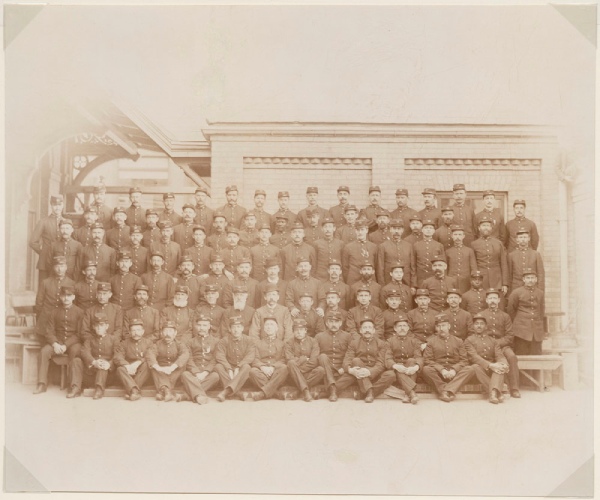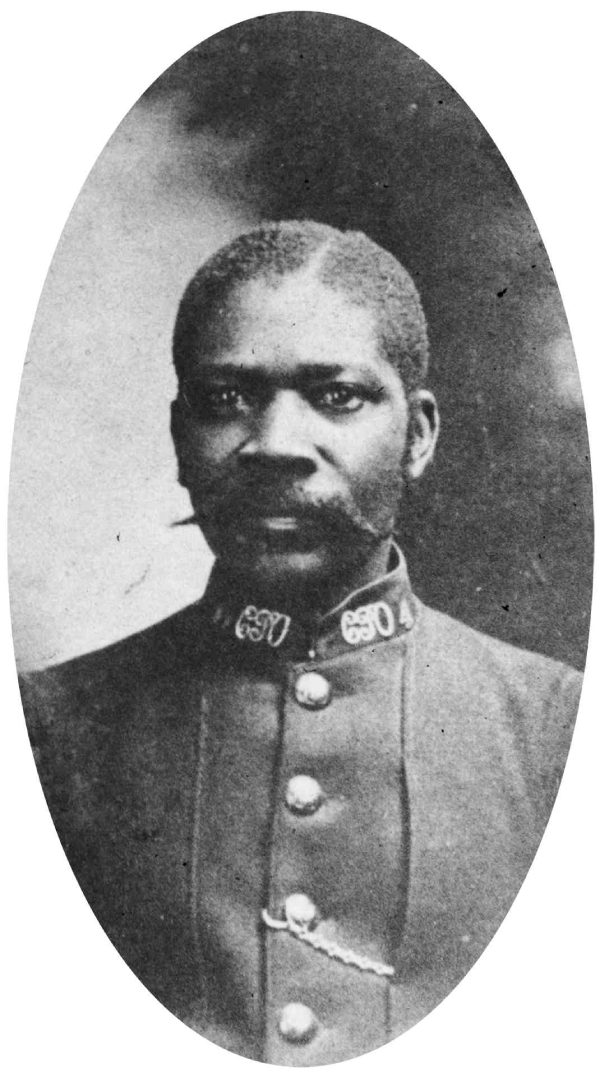Albert Calvin Jackson National Historic Person (1857–1918)
Albert Calvin Jackson was designated as a national historic person in 2024.
Historical importance: one of the first letter carriers of African descent hired by Canada's federal postal service, representative of more than 30,000 freedom seekers who came to Canada on the Underground Railroad to establish a new life.
Commemorative plaque: no plaque installedFootnote 1
Albert Calvin Jackson (1857–1918)
In 1882, Albert Calvin Jackson was hired as a letter carrier for Royal Mail Canada, which today is Canada Post. However, when he showed up for work, he was barred from taking up his position and demoted due to race-based discrimination. Jackson responded by initiating his own fight for employment equity. His mistreatment also aroused protest on the part of Toronto’s African Canadian community, which carried its demands to the Prime Minister. By June, Jackson was given his uniform and trained before he embarked on a 36-year career delivering mail. He was the first, or one of the first, letter carriers of African descent hired by Canada’s federal postal service. Jackson is also representative of more than 30,000 African American freedom seekers who came to Canada on the Underground Railroad. Jackson forged a new life in Canada, while fighting racism and contributing to Canada’s cultural, economic, and social life.
Albert Calvin Whitley Jackson was born in Delaware on 2 November 1857. The son of an enslaved mother and a free father, Albert was also legally enslaved. His father died before he was born, stricken with grief at the sale of his two oldest sons. Albert was just a year old when his mother, Ann Maria Jackson, took him and his remaining six siblings to the Province of Canada on the secret routes of the Underground Railroad. Arriving in Toronto in November 1858, she and her children are believed to have been hosted by Lucie and Thornton Blackburn. The Jacksons rented a home in St. John’s Ward, an immigrant reception suburb north and west of the city centre. Albert’s eldest brothers also escaped to rejoin their family.
Educated in local schools, on 12 May 1882, Jackson was hired as a mail carrier for Royal Mail Canada. However, white co-workers refused to train him to deliver the post. On Jackson’s first day of work, he was handed a broom and dustpan, and ordered to take up janitorial duties at the post office building. The Black community was outraged. Jackson’s mistreatment generated a long battle fought out in the press, starting with “The Objectionable African” published in the Toronto Evening Telegram on 17 May 1882. Black people suffered violent physical attacks on the streets, perpetrated by white people who objected to Jackson’s hiring in so prestigious a position as mail carrier. Jackson’s exclusion from his rightful position prompted Toronto’s large Black community to protest. At a public meeting, a committee was struck to appeal directly to Prime Minister John A. Macdonald, who instructed Postmaster T.C. Patterson to give Jackson the position for which he had been hired.
On 5 May 1883, Jackson married the daughter of freedom seekers who had also arrived on the Underground Railroad. He and his wife, the former Henrietta Elizabeth Jones, went on to have four sons. The family acquired several investment properties in the working-class district west of Spadina Avenue, now known as Harbord Village. Jackson died on 4 January 1918, and was laid to rest in the Toronto Necropolis Cemetery, near the graves of his siblings and mother.

© Canada Post Corporation / Library and Archives Canada

© Kennedy & Bell / Library and Archives Canada / e010963829

© Public domain
“Albert Jackson showed true strength and dignity while being persecuted for being a Black man in a white man’s world. The designation of our great-grandfather as a national historic person has surpassed our family’s wildest dreams! Jacksons have come together from far and wide to celebrate the many honours bestowed on him. The most indelible legacy he has left us with is the importance of family and never backing down! The Jackson family wishes to thank the Government of Canada for this wonderful honour.”
“Albert Jackson’s story is one that should never be forgotten and I am happy that my nomination has taken root at Parks Canada. It can grow through this recognition as a reminder to Canadians that Black people have fought many brave wars in this country and have won; for Black people to know that we can stand up and mobilize in the face of inequity and injustice, one valiant Albert Calvin Jackson paved the way for us. We are so grateful for his legacy and this honour ensures that it will continue to impact generations to come.”
This press backgrounder was prepared at the time of the Ministerial announcement in 2024.
The National Program of Historical Commemoration relies on the participation of Canadians in the identification of places, events and persons of national historic significance. Any member of the public can nominate a topic for consideration by the Historic Sites and Monuments Board of Canada.
- Date modified :